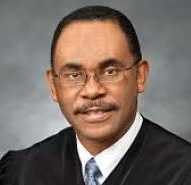Ethics
Retired California justice faces disciplinary charges for allegedly taking too long to decide cases

Former Justice William J. Murray Jr. of the Third District Court of Appeal in California has been accused of delaying hundreds of case decisions for years. (Photo from the Judicial Branch of California)
A retired state appellate justice in California has been accused of delaying hundreds of case decisions for years.
The California Commission on Judicial Performance said Monday it launched formal proceedings against former Justice William J. Murray Jr. of the Third District Court of Appeal in California, who retired in 2022 after serving for 12 years.
Among the commission’s charges, filed June 10, Murray “engaged in a neglect of duty and a pattern of chronic delay” by failing to promptly decide or dismiss 355 cases within a year after he was assigned a case or after a case was fully briefed. The commission said two of his cases, one of which was a juvenile matter, weren’t decided for more than eight years. It said more than 100 others were delayed between three and seven years.
The commission also noted that while “all protracted decisional delay damages the public’s esteem for the judiciary,” Murray’s decisional delays “resulted in actual prejudice” to parties in at least 16 cases. This allegedly includes an elderly victim of criminal securities fraud who died before Murray issued an opinion in the case, which he had been assigned four years earlier.
“You did not minimize the impact of delay by prioritizing the delayed matters and taking into account the effect of delay on the parties in some cases,” according to the commission. “Your neglect of duty and pattern of persistent decisional delay, as described above, … prejudiced civil litigants and criminal defendants. It also, at minimum, created the appearance that appropriate appellate review was impeded or denied.”
The commission alleged that Murray was aware of and often discussed his case backlog with other members of the court. It said “corrective measures,” which included reducing the number of cases and complex assignments, did not resolve his backlog. It also said cases were reassigned to other justices, and in several cases, another justice asked to be reassigned from a panel that included Murray because of concern about his decisional delays.
“Your neglect of duty and decisional delay … imposed a greater workload on research attorneys and other panel justices who were required to conduct additional research and analysis, some of which was necessary as the result of your delay in deciding the cases,” the commission said.
Murray is represented by Miller Waxler, according to Law.com, which has coverage of the commission’s charges against the retired justice. The law firm told the publication that Murray had worked toward a possible settlement with the Commission on Judicial Performance for more than a year after he retired. The firm also said Murray was disappointed by the charges but looked forward to presenting his case.
Law.com said Gregory Dresser, the commission’s executive director and chief counsel, declined to answer why disciplinary charges were not filed against Murray until three years after he retired.
“We believe we can prove, by clear and convincing evidence, the misconduct alleged in the notice of formal proceedings,” Dresser said in an email to Law.com. “We also believe that the misconduct in which Justice Murray engaged is serious.”
Law.com noted that the charges against Murray stem from an investigation into several justices on the appellate court who allegedly allowed cases to sit unattended for years before acting on them.
Write a letter to the editor, share a story tip or update, or report an error.

